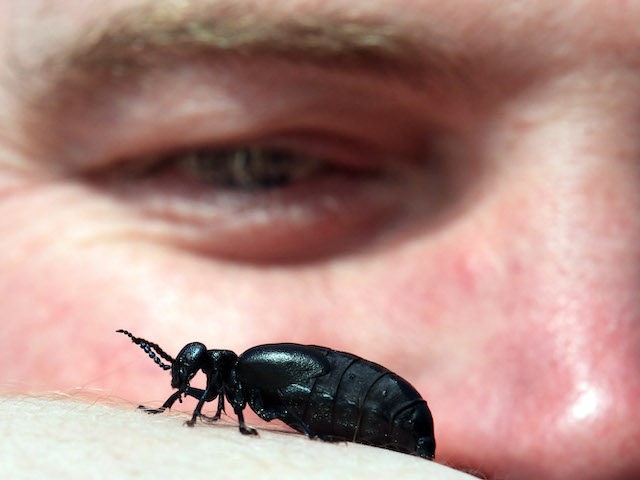Federal agents examining a cargo ship near New Orleans told it to vacate the country once they found it was infested with a certain type of Asian beetle.
The beetle has been destroying trees in the United States for approximately 25 years, Nola.com reported Wednesday.
Officials discovered the insect in wood onboard the Pan Jasmine July 17 after the vessel anchored in the Mississippi River approximately one mile from New Orleans.
“Flagged under Panama, the ship had previously offloaded a shipment of aluminum in Veracruz, Mexico, after departing a port in India,” the outlet said.
The wood used for packing the aluminum had not been offloaded in Mexico and was scattered on the deck of the vessel, which the U.S. Customs and Border Protection (CBP) deemed “unusual” in a press release Wednesday.
The agency continued:
No reason was provided to CBP as to why the dunnage [wood] was refused discharge in Mexico, and this raised a red flag. An examination of the dunnage revealed burrowing holes and fresh sawdust near the holes, which indicates pests. After two examinations of the dunnage by CBP and USDA personnel, five separate pests were found and identified. Two of the pests discovered pose an agriculture threat to the U.S. They were positively identified by USDA entomologists as Cerambycidae and Myrmicinae.
…
Cerambycids were discovered in New York City in 1996 and later in Chicago. Native to China and the Korean peninsula, the Cerambycids were accidentally imported into the U.S. via wooden shipping materials. Within two years, infestations resulted in the destruction of nearly 7,000 trees. Recently, the USDA estimated that, if left uncontrolled, Cerambycids and other Chinese wood boring beetles could cause more than $100 billion in damage to the U.S. economy.
The vessel was ordered to depart U.S. waters and left July 21 for Freeport, Bahamas, to receive wood disposal services, the Nola.com report said.
“If the wood had been offloaded into the U.S., it would have been put in a Louisiana landfill where the insects could crawl out and invade the local habitat, causing incalculable damage,” Terri Edwards, the agency’s New Orleans area port director, explained.
In May, CBP Agriculture Specialists in San Francisco said they found an infestation of pests in antique terracotta roof tiles imported from France, KMPH reported.

COMMENTS
Please let us know if you're having issues with commenting.